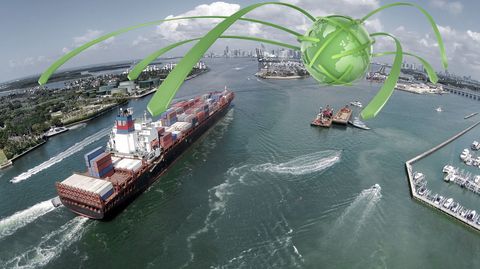As the economy of Asia continues to grow and evolve, it becomes more and more important for leading nations to forge strong trade links with the region. As the world's leading economic superpower, this is especially true of the US, perhaps more than any other country.
In the last few years, president Barack Obama's administration has been attempting to deepen its partnership with the Association of Southeast Asian Nations (ASEAN), the ten-nation economic bloc that consists of Brunei, Cambodia, Indonesia, Laos, Malaysia, Myanmar, the Philippines, Singapore, Thailand and Vietnam. These nations have become key trading partners for the US, and the superpower is keen to increase the value of these relationships further by working more directly with ASEAN on key initiatives.
Last month, consultations were held between economic ministers from the ASEAN nations and US trade representative Michael Froman in Laos, during which the ministers were able to discuss the development of US-ASEAN relations in recent years, as well as the steps that will be taken to create a more mutually beneficial system of trade in future.
Recent successes
ASEAN-US bilateral trade and investment is currently in a fairly healthy state, with merchandise trade having now risen to $212.8 billion (€190.62 billion) - accounting for 9.3 per cent of all ASEAN merchandise trade activity - while the value of trade in services reached almost $40 billion.
Meanwhile, foreign direct investment flows from the US to ASEAN hit $12.2 billion in 2015, meaning the US is now ASEAN's third largest contributor, as well as being one of the biggest investors in the ASEAN region in terms of cumulative foreign direct investment, with contributions of $273.4 billion in 2015.
The recent establishment of the ASEAN Economic Community (AEC) has been highlighted as a major milestone in regional economic integration that will help to drive future growth in the region, while the implementation of the US-ASEAN Connect strategic framework is also continuing apace.
Additionally, ASEAN ministers welcomed the progress in implementing the ASEAN-US Trade and Investment Framework Arrangement and the Expanded Economic Engagement Initiatives Work Plan as a positive development.
Key principles
The core principles of the ASEAN-US relationship were discussed at length during the summit, with the establishment of transparency and sound regulatory practices highlighted as a key priority. Efforts continue to be made to ensure future regulations affecting trade between the regions are produced with the needs of companies of all sizes in mind, and then implemented in a way that emphasizes clear objectives and the removal of unnecessary barriers to trade.
Other key priorities include ensuring open and non-discriminatory investment climates can be maintained, with a level playing field and competitive neutrality for state-owned entities and private commercial enterprises alike, as well as strong protection for investors and the implementation of fair and effective systems of dispute resolution.
The US and ASEAN are also working together closely to ensure national security standards are upheld and that multinational enterprises are compelled to operate in a socially responsible manner, with proper checks and balances in place.
Future efforts
In the coming months and years, the US and ASEAN will be working together closely on a number of initiatives, with the US assisting in ASEAN Economic Community building and regional integration efforts, while efforts will be made to continue building trade and investment links in line with the ASEAN Economic Community Blueprint for 2025.
Work will be done to expand ASEAN-US internship opportunities in order to give companies in both regions access to a wider pool of talent, while also strengthening links between the regions; the US, meanwhile, is helping to back the ASEAN Connectivity through Trade and Investment Programme, which will play an important role in building up the digital economy of the ten ASEAN member states.
A joint statement said: "The government of the United States of America and the Association of Southeast Asian Nations recognize the importance of creating and maintaining open and stable investment climates and policies in promoting sustainable economic development and growth, job creation, increased productivity, technological innovation and competitiveness."






